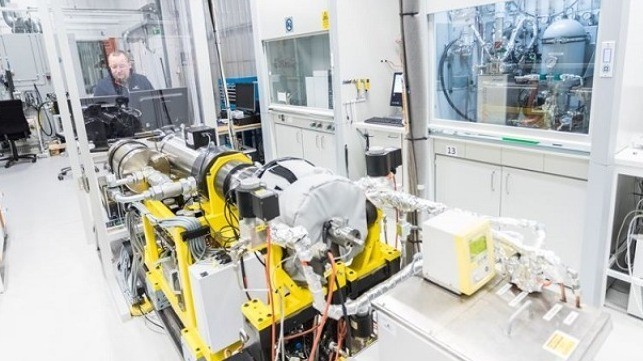A program is commencing to explore the use of ammonia as a maritime fuel. Underwritten with a $2.1 million grant from the Norwegian Research Council through the DEMO 2000 program, the project will be led by Wartsila’s technology group in cooperation with Knutsen OAS Shipping AS and Repsol, as well as with the Sustainable Energy Catapult Centre.
There has been a growing interest in the maritime industry in ammonia, which is seen as a promising carbon-free fuel for marine applications. Several research initiatives have been launched into ammonia as a marine fuel as the industry works to meet the International Maritime Organization’s goal of reducing greenhouse gas emissions from shipping by at least 50 percent by 2050. Ammonia is seen as having a strong potential for the industry and according to this project also has a strong potential for providing green energy to remote power systems, such as offshore installations on the Norwegian Continental Shelf.
Billed as the first long-term full-scale test of ammonia in a four-stroke combustion engine test, the project will start during the first quarter of 2021. It will be conducted at the Sustainable Energy Catapult Centre’s testing facilities at Stord, Norway.
“This is a great example that illustrates the importance of dedicated petroleum R&D. This DEMO 2000 project is another steppingstone for reaching our ambitious climate targets and it is also aligned with our recently published hydrogen strategy,” says Tina Bru, Norwegian Minister of Petroleum and Energy. “We need to develop and use new technologies that reduce emissions. We are very happy to support development work that can lead to increased use of ammonia as a fuel in shipping and the offshore sector. Know-how from this project will also provide important input to the development of regulations for the use of ammonia and other low-carbon fuels.”
This program will build on Wärtsilä’s ongoing research and development work on future fuels. During the winter of 2020, the company initiated combustion trials using ammonia and injecting it into a combustion research unit to better understand its properties. In March, Wartsila reported based on its initial results, the tests would continue on both dual-fuel and spark-ignited gas engines.
“We are excited to further develop and understand the combustion properties of ammonia as a carbon-free fuel in one of our multi-fuel engines”, says Egil Hystad, General Manager, Market Innovation at Wärtsilä Marine Business. "Ammonia storage and supply systems will be designed and developed for maximum personal safety, and in parallel with the Fuel Gas Handling System under development as part of the EU project ShipFC. This project is coordinated by NCE Maritime CleanTech, and it involves an ammonia driven fuel cell that will be tested on the Eidesvik Offshore supply vessel, Viking Energy.”
The goal of the project is to pave the way for ammonia engines to be used in vessel operations within a few years. According to the partners, several ship owners have shown interest in the possibility of commercializing ammonia as a fuel. The research will also provide important insights into the long-term effect of an ammonia fueled engine to other systems and components in a vessel, including the required safety measures.








Comments (0)